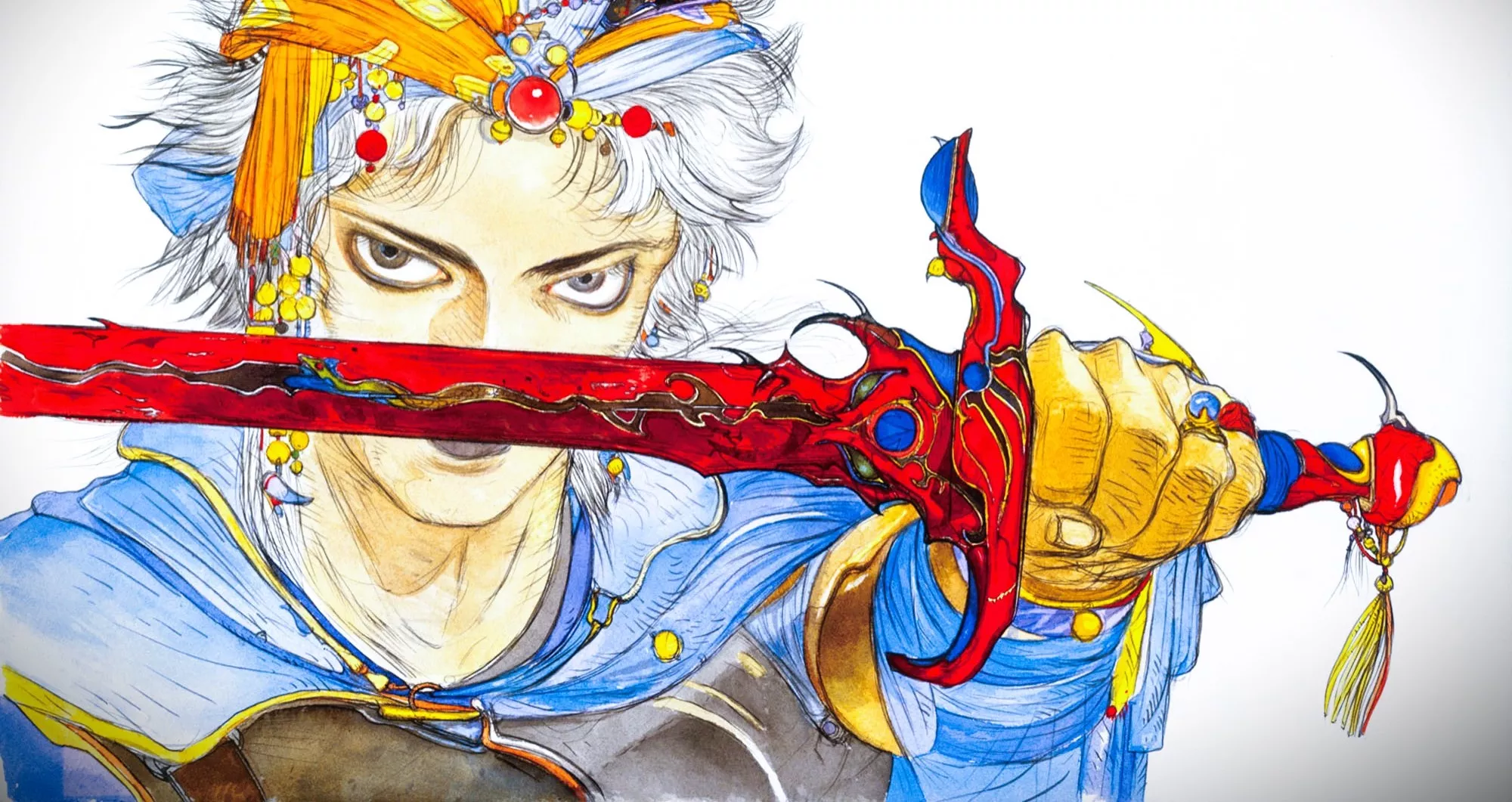These games rank among the finest in the realm of role-playing games, but determining the ultimate pinnacle among the mainline Final Fantasy series can be quite the challenge.
With a history spanning over 35 years, the Final Fantasy series has become synonymous with the world of video game RPGs. Originally conceived as Square’s final attempt to salvage a company teetering on the edge of bankruptcy, Final Fantasy surpassed all expectations and became an unexpected sensation. This success led to the creation of numerous sequels and spin-offs over the years. Whether it’s the grandiose storylines, the ever-evolving combat systems, or the iconic music, millions of gamers worldwide have embraced Final Fantasy, propelling it to become one of the largest franchises in the gaming industry.
Naturally, the question of which Final Fantasy game reigns supreme is always a hot topic of debate. As the release of Final Fantasy XVI draws near, it seems fitting to finally rank the mainline games from worst to best. However, it’s important to keep a few factors in mind while perusing this list, as defining what qualifies as a “mainline” Final Fantasy can be somewhat complex:
- A mainline game refers to a numbered Final Fantasy entry or one of its direct sequels that largely follows the same style of gameplay. This means that spin-offs like Final Fantasy Tactics and Stranger of Paradise have been excluded from this ranking, and games like Crisis Core and Revenant Wings, which ventured into different genres, were not considered.
- Given that older Final Fantasy titles have undergone multiple re-releases and remakes throughout the years, this list takes into account all the various ports when determining a game’s position. Therefore, Final Fantasy IV is not ranked separately for its SNES, GBA, or Pixel Remaster versions, nor for the Nintendo DS remake.
- However, one exception has been made to the aforementioned rule for the Final Fantasy VII Remake, as its significant deviations from the original warranted its own distinct place on this list.
With these considerations in mind, here is the ranking of the mainline Final Fantasy games:
Lightning Returns: Final Fantasy XIII
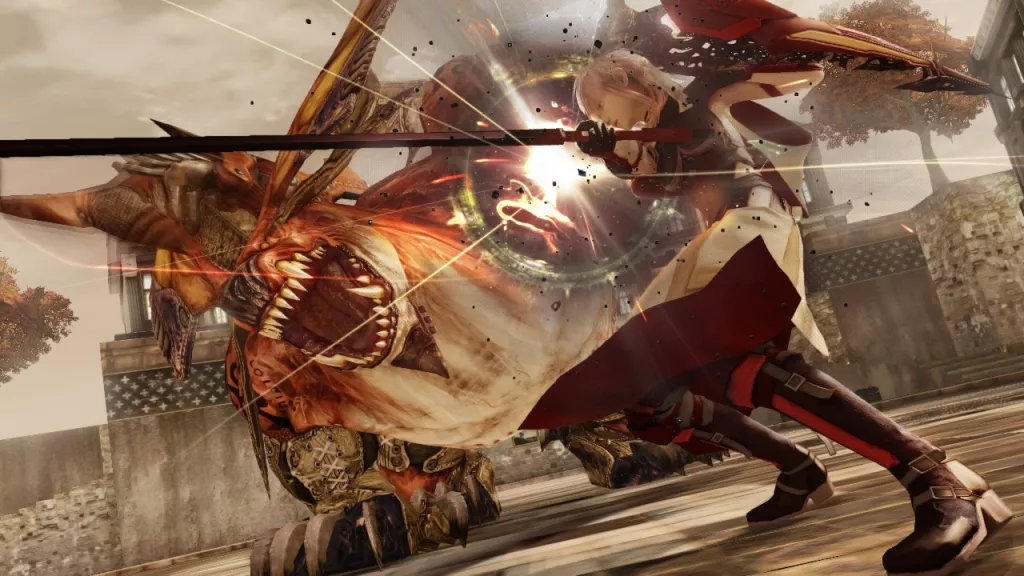
Among the mainline Final Fantasy games, Final Fantasy XIII stands alone as the sole entry to evolve into a trilogy. However, the third installment’s lackluster reception may dissuade Square from pursuing such a concept in the future.
Regrettably, if you found yourself engrossed in the narrative of the first two FF XIII games, you may be disappointed, as the plot of the third game veers so drastically off course that it almost feels like an entirely unrelated story featuring characters from its predecessors.
On a positive note, the refined battle system, which grants Lightning different abilities based on her outfit changes, does offer some enjoyment. However, this aspect is overshadowed by an abundance of mundane fetch quests and an exasperating in-game countdown that mandates restarting the game if time runs out. Ultimately, Lightning Returns proves to be a challenging recommendation, catering primarily to the most ardent Final Fantasy enthusiasts.
Final Fantasy IV: The After Years
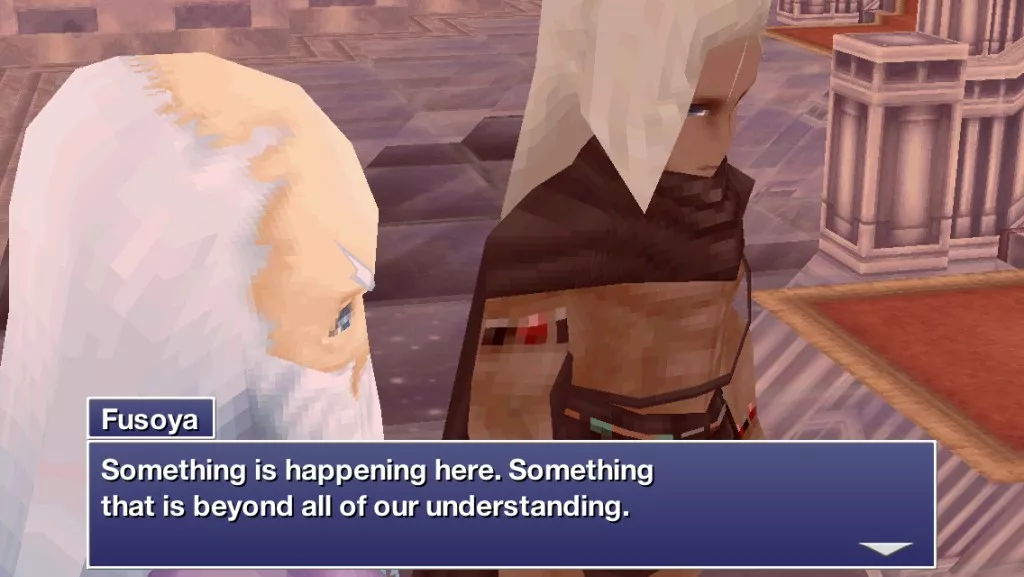
Final Fantasy IV is often hailed as one of the greatest RPGs ever made, but unfortunately, its sequel, The After Years, falls short and was unnecessary. The game’s flaws can be attributed, in part, to its timing. The After Years was released during a period of rapid advancements in mobile phone technology and the growing popularity of downloadable console games. Square Enix, for some reason, chose to capitalize on these trends by releasing The After Years as a series of episodes, initially on Japanese cellphones and later on WiiWare.
While the concept of episodic gaming isn’t inherently bad, history has shown that it rarely lives up to developers’ expectations. In the case of The After Years, this format does not excuse its heavy reliance on recycled levels and bosses from Final Fantasy IV. Furthermore, the endgame of The After Years is plagued by excessive grinding and frustrating gameplay. Instead of being something truly special, The After Years ended up feeling like a hollow shell of the classic Final Fantasy game it sought to emulate.
Final Fantasy II
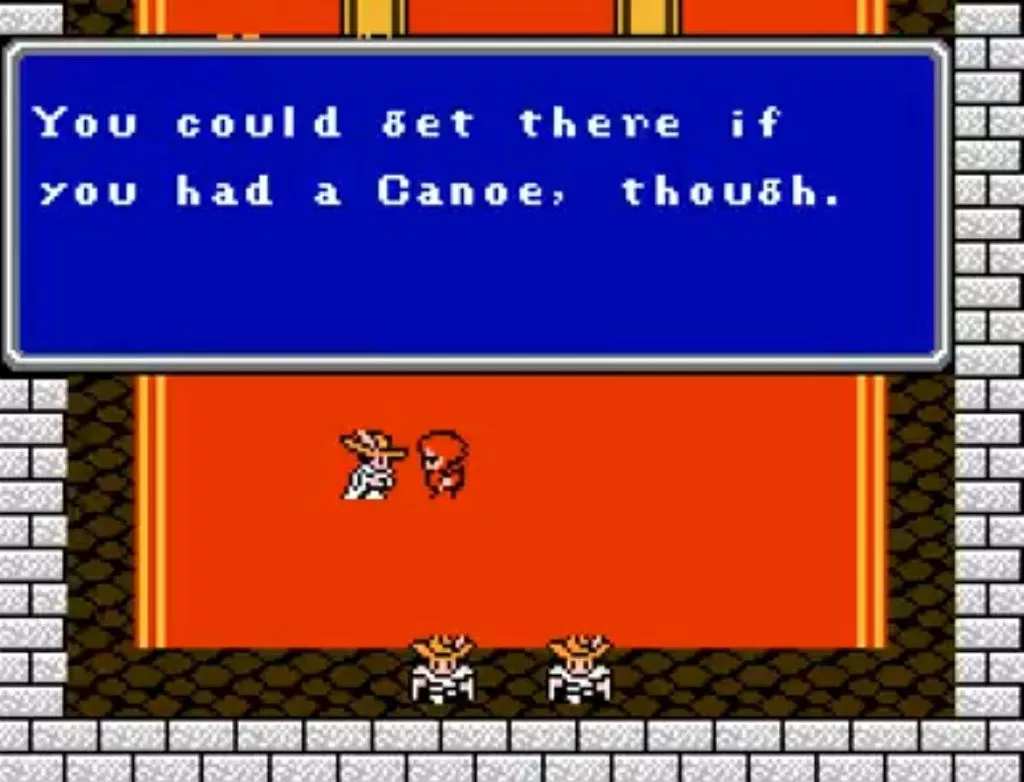
Final Fantasy II is often ranked towards the lower end of the series, and for valid reasons. It’s not necessarily a terrible game, but it does suffer from significant flaws.
Following the unexpected success of the first game, Square hastily approved a sequel without a well-defined plan, primarily aiming to capitalize on the original’s achievements. As a result, the sequel offered a slightly improved storyline, but the development team made a questionable decision regarding the upgrade of abilities. Instead of utilizing experience points like the original, abilities were upgraded based on their frequency of use in battle.
While many modern RPGs employ similar systems, this approach wasn’t adequately refined during the rushed development of this sequel, compounded by the limitations of the NES hardware. Most notably, players quickly discovered an exploit that allowed them to exploit the system’s flaws and become increasingly powerful by attacking their own party members. Unfortunately, this issue has rarely been addressed in subsequent re-releases of the game.
If you still wish to experience Final Fantasy II, it’s worth noting that the Game Boy Advance version is considered the best option. It includes a significant amount of additional content not found in other versions, including the now widely available Pixel Remaster.
Final Fantasy III
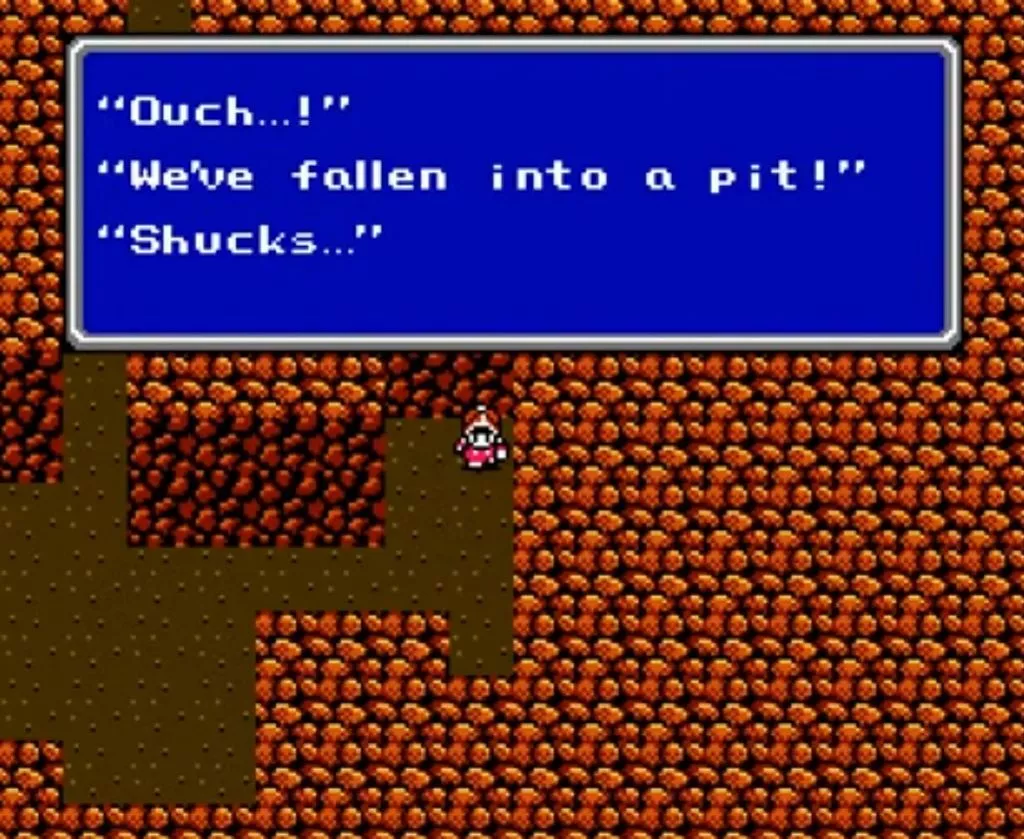
Final Fantasy III initially released in Japan for the Famicom in 1990, but it took a lengthy 16 years for the game to officially arrive in the West. Even then, it was in the form of a 3D remake specifically designed for the Nintendo DS. However, it’s safe to say that few gamers would argue that the wait was truly worthwhile.
Regardless of the version you choose to play, the main issue with Final Fantasy III in the 21st century is that it feels more like a historical relic rather than a must-play classic. While the turn-based combat was slightly refined, the reintroduction of the experience point system was a welcome addition, and the debut of the Job System was noteworthy, all of these elements are part of a game that can be excessively challenging and reflects its age.
Final Fantasy III can certainly be an enjoyable experience for retro gamers seeking a nostalgic trip down memory lane. However, for more casual RPG enthusiasts, there is little reason to explore it now, aside from appreciating its role in the origins of ideas that have been significantly improved upon in later titles.
Final Fantasy XI
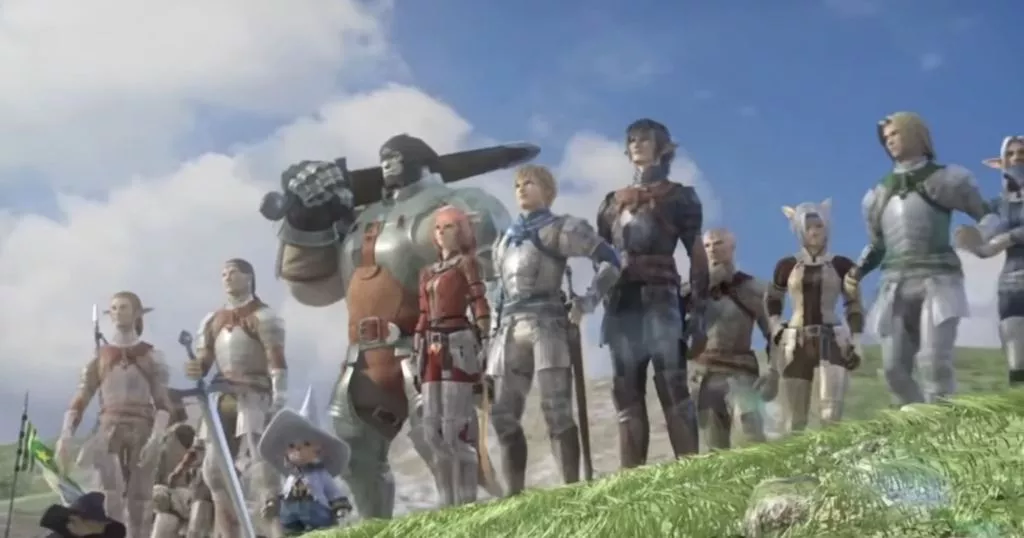
Many gamers still hold dear memories of playing Final Fantasy XI on the PlayStation 2 or Xbox 360. Although the console versions have been shut down for years, the PC version of Final Fantasy XI continues to thrive over 20 years since its original release.
In 2023, whether Square’s first MMO is still worth playing largely depends on your tolerance for the idiosyncrasies of an MMO that debuted when Tom Brady had only won one Super Bowl ring. The game’s graphics and user interface may appear dated, and while numerous quality-of-life improvements have been implemented over the years to facilitate solo play, Final Fantasy XI still retains a certain degree of grindiness. However, if you can overlook these issues, you’ll find an expansive wealth of content that can easily consume hundreds of hours of your time. Moreover, Square Enix shows no signs of intending to shut down the servers anytime soon, ensuring a continued experience for players.
Final Fantasy XIII
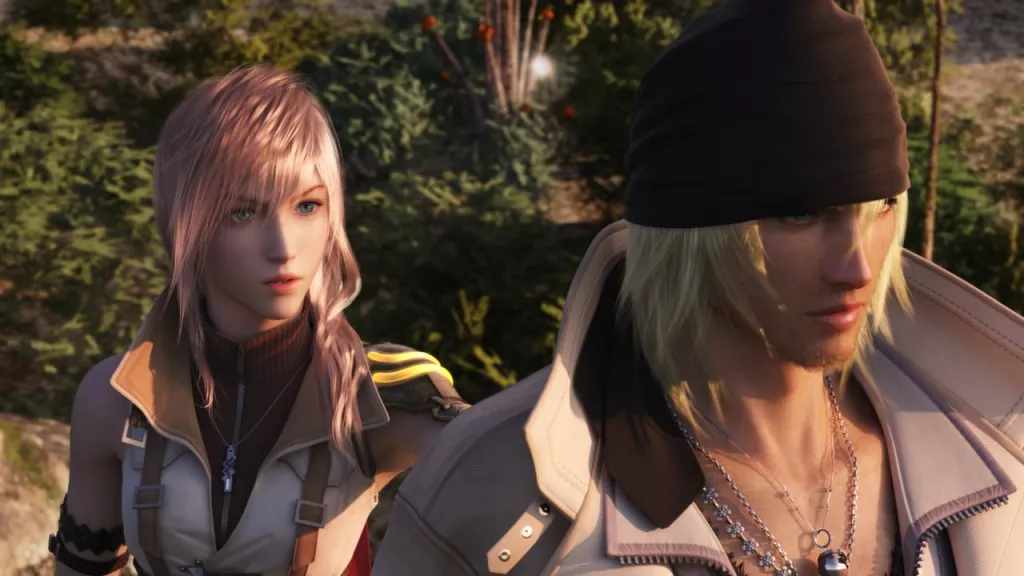
Final Fantasy XIII often faces criticism for being labeled a “hallway simulator,” and it’s a critique that holds some truth. The game predominantly follows a linear path, and players have limited control over unlocking abilities until several hours into the game. However, once you gain access to a good number of commands, the game’s Paradigm system proves to be highly enjoyable, allowing for strategic gameplay that can make even challenging enemies easily conquerable.
Despite more than a decade passing since its release, Final Fantasy XIII still boasts impressive visuals and features a cast of likable characters. It’s unfortunate, though, that these characters find themselves trapped in a convoluted story that often becomes entangled in in-game terminology and lore. While the game receives its fair share of criticism, it’s important to note that Final Fantasy XIII isn’t a bad RPG per se; it just falls short as a notable entry within the Final Fantasy series.
Final Fantasy XIII-2
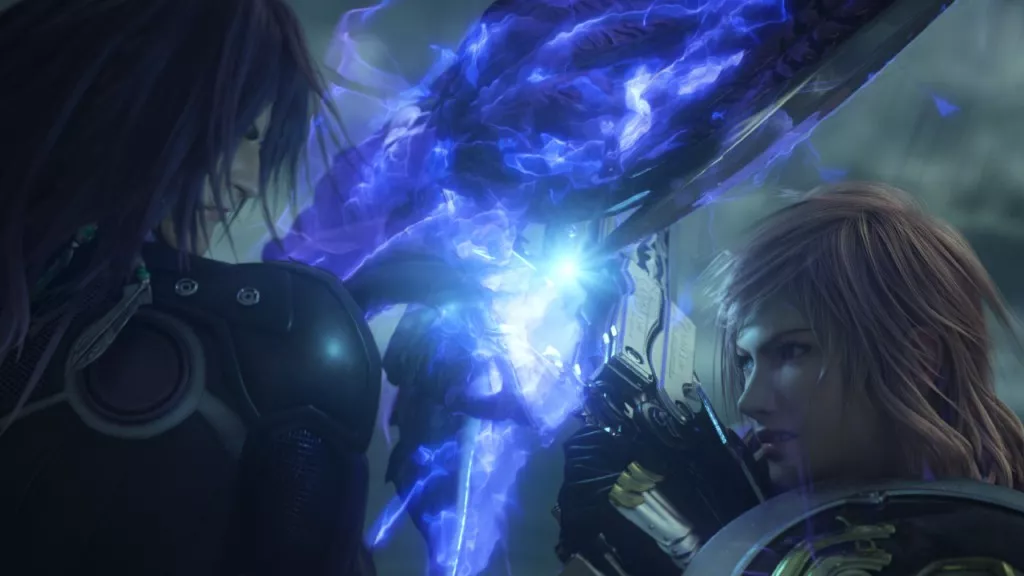
The second installment in the Final Fantasy XIII trilogy addressed some of the issues present in the first game, but unfortunately, it introduced new problems of its own.
One noticeable improvement is the game’s increased openness compared to its predecessor, allowing players to explore different levels across various eras thanks to the introduction of time travel. This aspect adds a sense of fun and variety. However, along with these positive changes, players are now limited to the same two party members throughout the entire game, with only a random monster serving as additional support. While the inclusion of time travel enhances level design, it doesn’t contribute significantly to the overall story and mainly serves as a setup for what is arguably the franchise’s weakest antagonist.
The fact that Final Fantasy XIII-2 still manages to be the best among the three games speaks volumes about the overall quality of the trilogy, despite its significant flaws.
Final Fantasy VIII
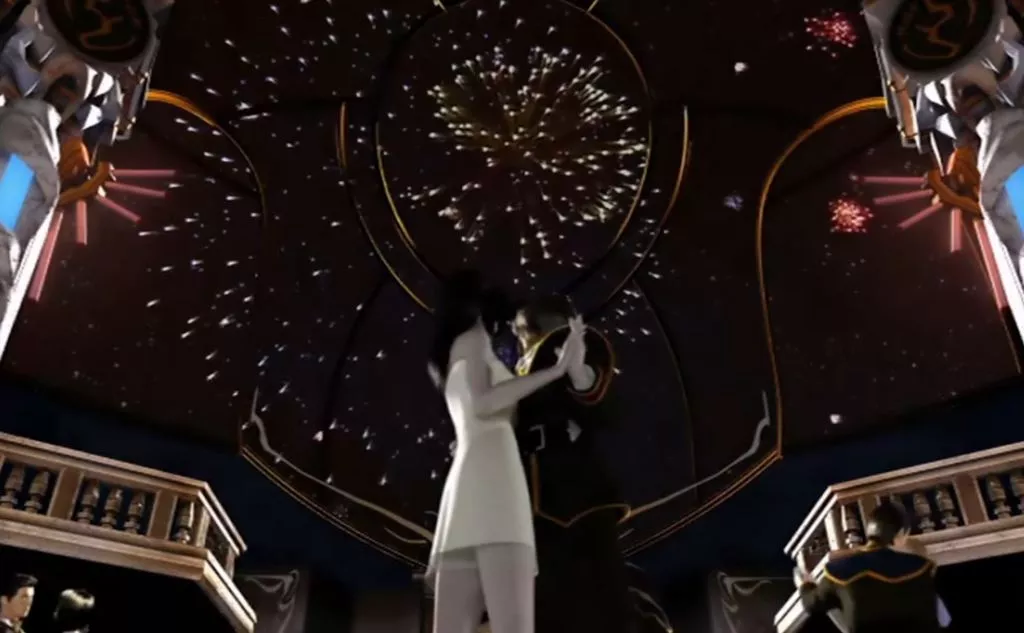
The sixth and seventh installments of the Final Fantasy series are widely regarded as some of the greatest games ever created. During that same era, Square also delivered remarkable titles like Parasite Eve, Xenogears, and Vagrant Story at an astonishing pace. It’s rare for a developer to consistently release such high-quality games within a short span of time, making a misstep or two inevitable. While Final Fantasy VIII is far from a bad game, it’s difficult to view it as anything other than a stumble amidst Square’s golden age.
The game’s love story and its incorporation of science-fiction elements have actually aged quite well, and although the cinematics may show their age today, they remain fantastic. However, what often hinders this game for many fans is the Junction System. While some people do appreciate it, most RPG veterans find the system, which places more emphasis on magic and summons rather than gear when affecting stats, to be unfamiliar and somewhat foreign.
If the Junction System resonates with you, Final Fantasy VIII could easily be considered a top-tier entry in the series. However, for the majority of gamers, it will likely fall somewhere in the middle of the pack.
Final Fantasy XV
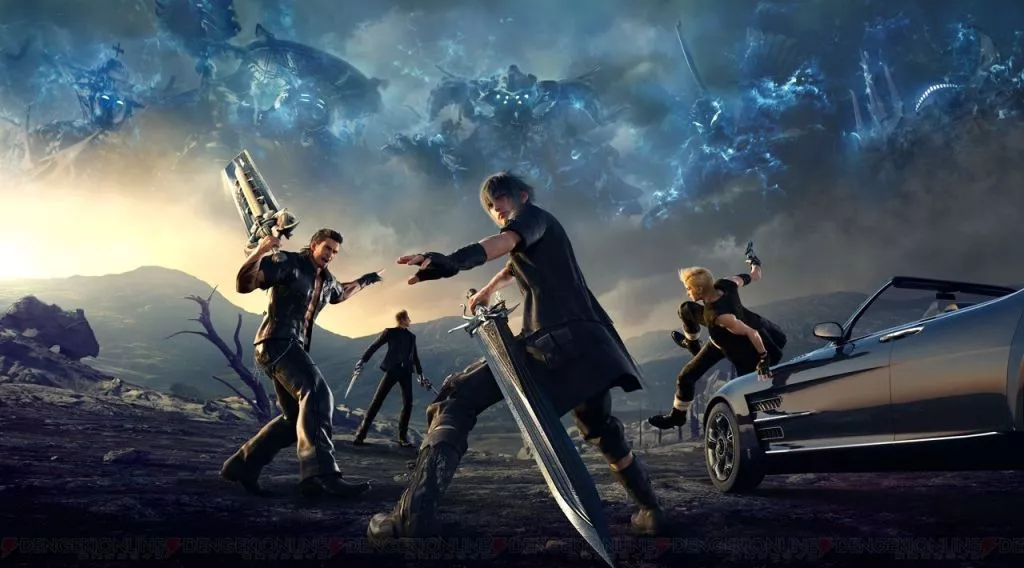
There are dedicated fans of the series who argue that Final Fantasy XV deviated too far from its predecessors and became a detrimental turning point for the franchise. While it is indeed distinct from previous titles, for the most part, it succeeds.
The Final Fantasy games have always embraced evolution, and Final Fantasy XV’s open-world design and real-time combat were essential to keep the series relevant in the era of 4K gaming. However, the game falters when it clings to elements from the series’ past. The story’s road trip concept feels lackluster, and the narrative as a whole fails to truly take off (requiring additional content in the form of DLC episodes, which can be frustrating).
Nonetheless, Final Fantasy XV offers more positive aspects than negatives, instilling hope for the future direction of the series with titles like Final Fantasy XVI and beyond.
Final Fantasy X-2
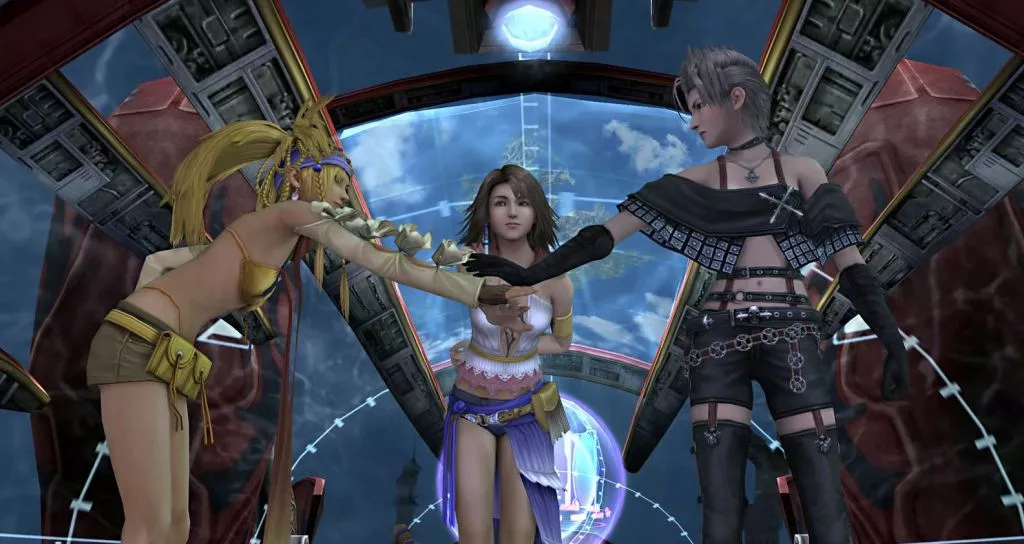
As we’ve observed before, Square Enix hasn’t had the best track record with mainline Final Fantasy sequels. However, their initial endeavor at a direct sequel still stands out as the strongest, despite some of its design choices not aging particularly well. I must admit, the Garment Grid and Dressphere systems have always seemed rather silly. Furthermore, the game’s overall J-pop vibe may not appeal to everyone’s taste.
Nevertheless, once you overcome these issues, the battles in this game prove to be remarkably fast-paced and enjoyable. What’s even more refreshing is the ability to explore most of Spira right from the beginning, offering a welcome departure from the increasingly linear nature of the series at that time. It almost feels unjust not to experience Final Fantasy X-2 if you’ve completed the first game, which is more than can be said for the other direct sequels in the series.
Final Fantasy V
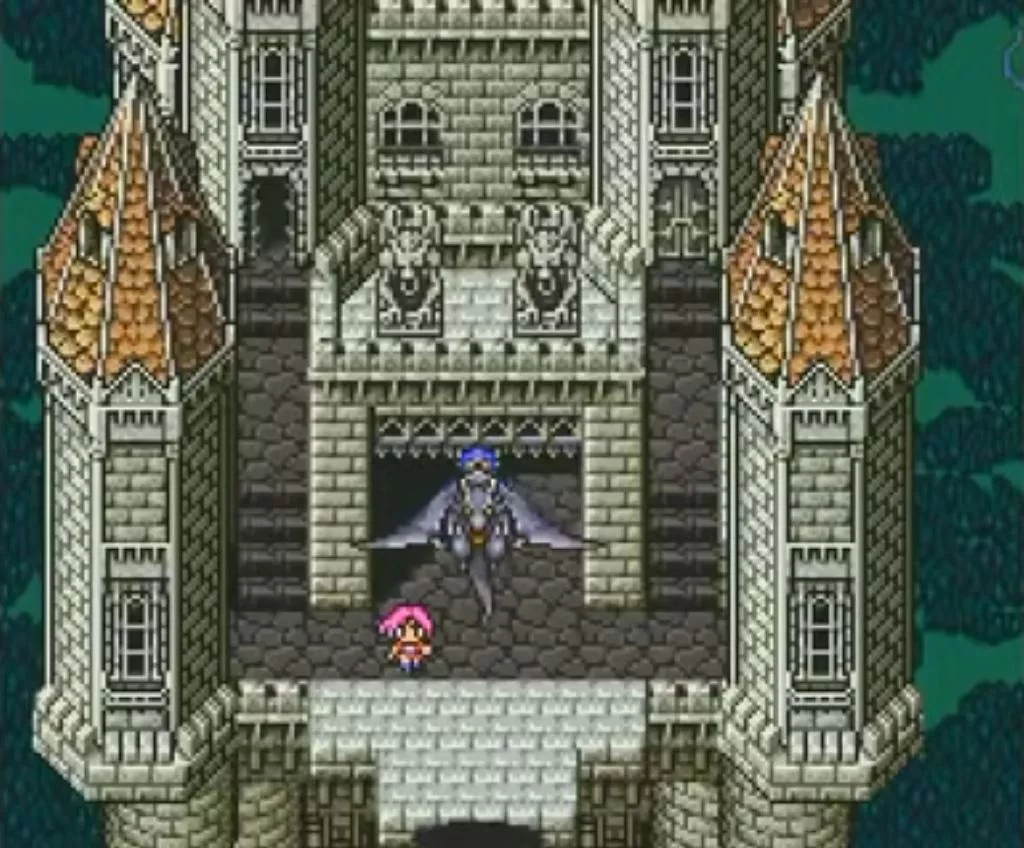
Originally released on the SNES, Final Fantasy V didn’t make its way to the Western market until its arrival on the PS1 in 1999. Unfortunately, this delayed release has always affected the game’s reputation in the U.S., which is truly unfortunate because it is a hidden gem of an RPG with one of the most underrated soundtracks of its era.
Granted, the story and characters may not be the strongest in the series, but the real highlight here is the refined Job System. Expanding upon the concepts introduced in Final Fantasy III, Final Fantasy V offers a whopping 22 jobs to master, allowing players to customize their experience in any order and combination they desire. This opens up the potential for highly customizable and even overpowered character builds.
Final Fantasy V is the one installment in the series that fully embraces and focuses on its pure role-playing mechanics. While the series has moved away from the Job System in recent years, it’s worth noting that this idea has found a new home in the Bravely Default games.
Final Fantasy XII
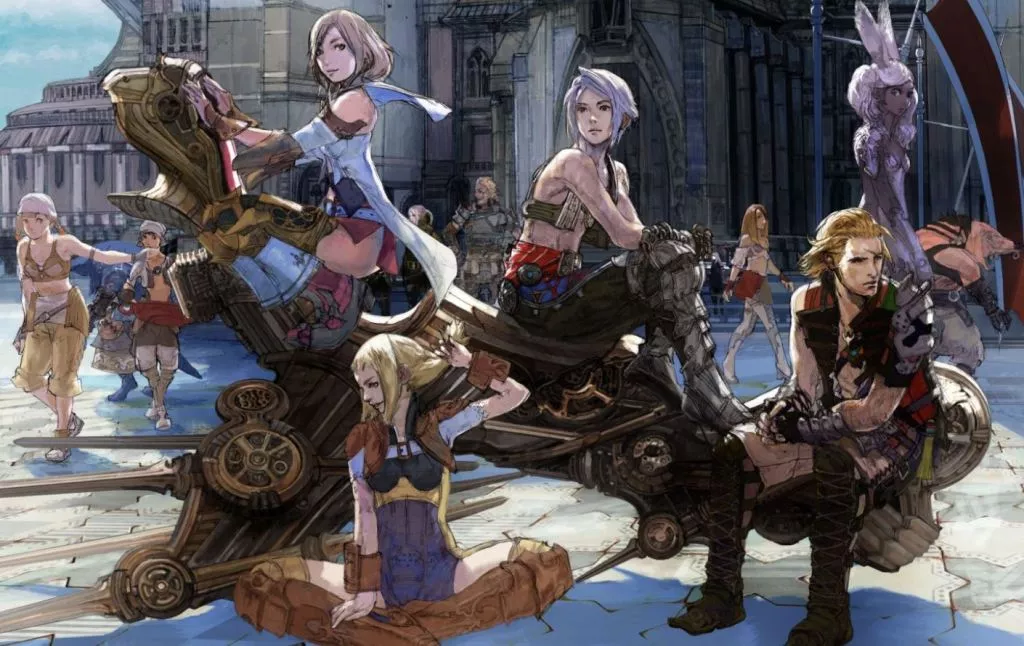
Critics may label Final Fantasy XII as dull and sluggish, but despite its slower-paced story compared to other titles, once it gains momentum, you’ll discover a masterfully crafted political drama set in a unique fantasy world.
Final Fantasy XII introduces numerous changes to the traditional Final Fantasy gameplay, such as the elimination of random encounters and the implementation of a gambit system that governs AI behavior. Over time, these design choices have stood the test of time and have been embraced by many other RPGs.
Moreover, the inclusion of a Job System in the remastered version of the game, The Zodiac Age, which is more widely accessible than the original release, has significantly contributed to the game’s improved reputation in the modern era. Even if you didn’t appreciate Final Fantasy XII when it initially arrived on the PS2, it is certainly worth revisiting now.
Final Fantasy IX

By the end of the 1990s, the Final Fantasy series had deviated from its traditional fantasy roots, venturing into heavy science fiction themes in its last three releases. In an effort to return to the series’ origins, Square developed Final Fantasy IX, embracing a medieval setting and a narrative centered around warring nations, paying homage to earlier games in the franchise.
While the game occasionally feels formulaic, Final Fantasy IX remains a delightful experience overall. It owes much of its charm to a cast of likable characters and a combat system that is far more accessible compared to its predecessor’s controversial Junction System. Recent rumors circulating on the Internet suggest that Square Enix’s next major remake will be Final Fantasy IX, though it will be intriguing to witness whether they can recapture the original’s magic.
Final Fantasy
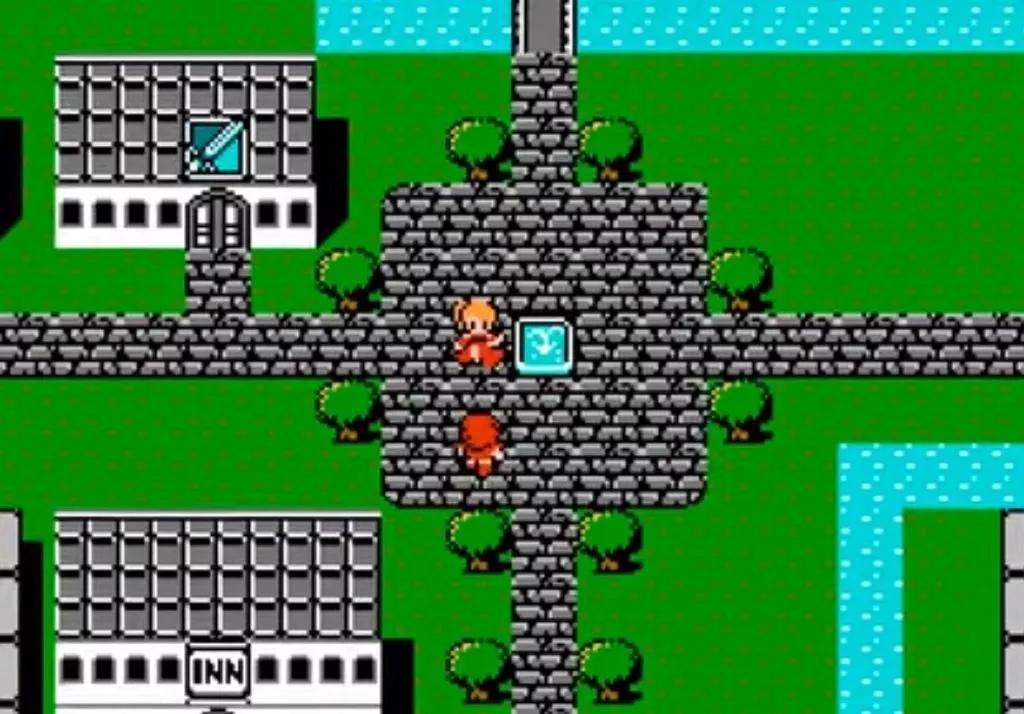
Although the original Final Fantasy is short and straightforward, it continues to offer a remarkably enjoyable gameplay experience.
At the beginning of the game, you assemble a party of four characters from a selection of six distinct character classes. You can either create a well-rounded party for a smooth playthrough or challenge yourself by attempting to complete the game with a party consisting solely of white mages, resulting in one of the most challenging RPG experiences imaginable. The simplicity of the setup is offset by the game’s remarkable replayability, thanks to the freedom of party customization.
It is important to note that seeking out the original NES version of the game can be a rough experience due to technical limitations and high difficulty. Opting for the Pixel Remaster version or one of the many other remakes or re-releases is highly recommended for an ideal way to experience this classic game today.
Final Fantasy XIV
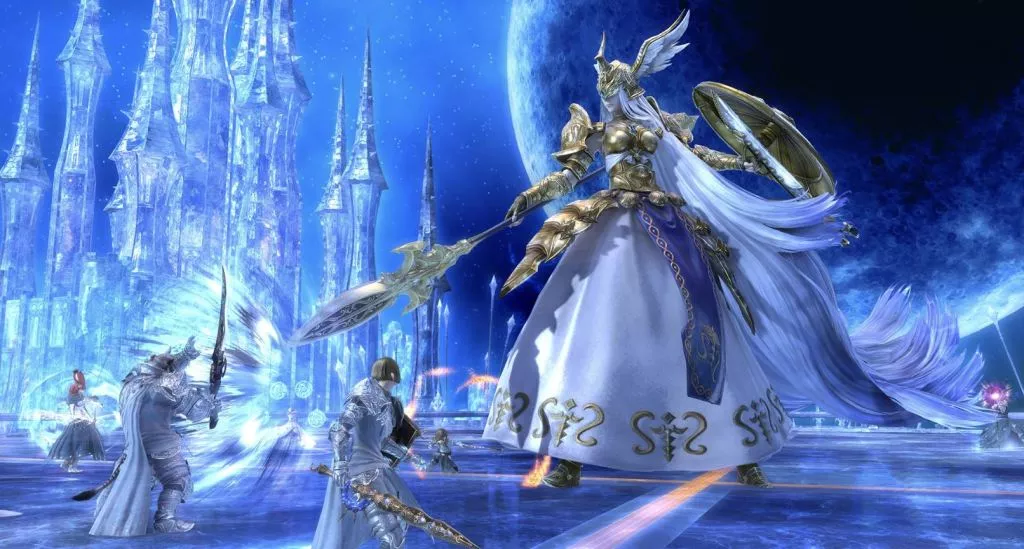
If I were solely considering the original release of Final Fantasy XIV, it would unquestionably rank at the bottom of this list. The initial version of the game was genuinely terrible, and Square Enix made the right decision to completely revamp it. However, Final Fantasy XIV has achieved one of the most remarkable comebacks in gaming history, with many regarding it as the best MMO available today.
What sets Final Fantasy XIV apart isn’t necessarily that it offers a drastically different experience from other MMOs. Rather, it excels in every aspect, making the genre accessible even to casual players, while delivering a surprisingly immersive story for this type of game.
The inclusion of elaborate Final Fantasy fan service, with numerous references and nods to other games in the series, is an added delight. Considering the consistent quality of the game’s expansions, which continuously introduce new content, Final Fantasy XIV has the potential to secure an even higher position on this list in the future.
Final Fantasy IV
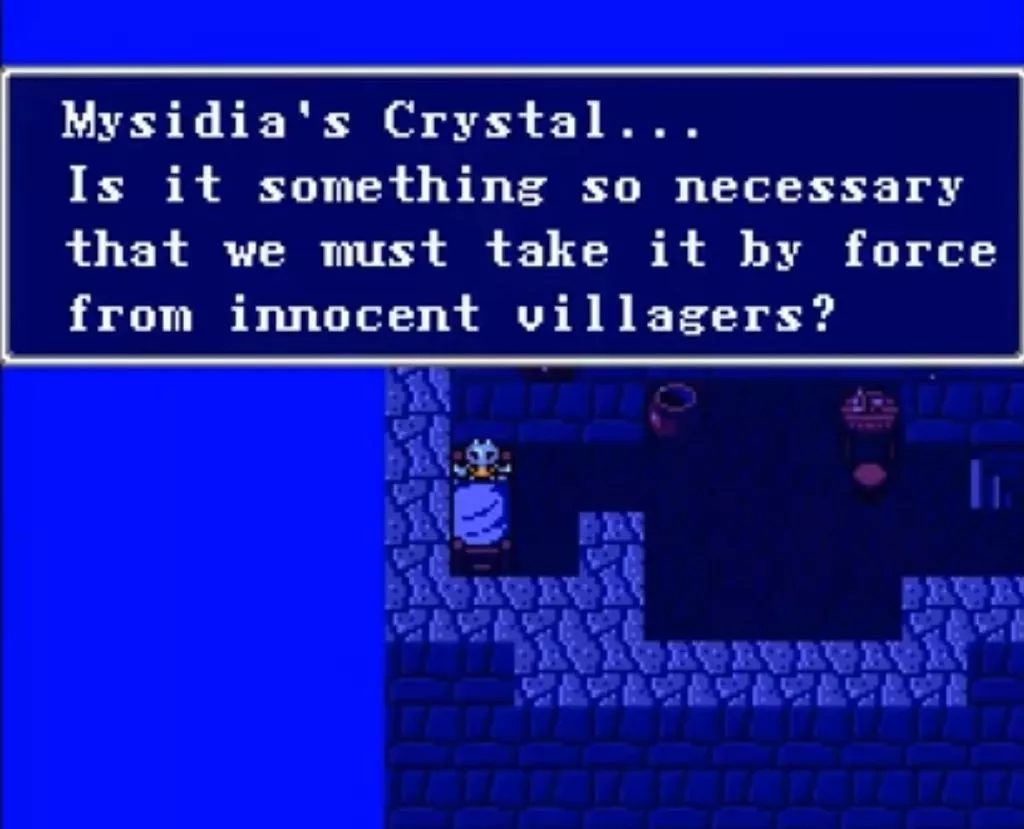
For the majority of gamers who grew up in the ’90s, Final Fantasy IV marked a significant turning point for the series. This installment introduced the Active Time Battle (ATB) system, which would go on to become a staple in the franchise for years to come. However, the most notable innovation of this game will always be its storytelling.
Prior to Final Fantasy IV, many console RPGs followed the familiar “heroes unite and save the world” narrative. While it served its purpose, experiencing the same storyline repeatedly became tiresome. Final Fantasy IV broke the mold by introducing complex characters such as Cecil, Kain, and Rosa, whom players genuinely cared about. It presented a more emotionally driven tale of redemption. Even with its pixelated graphics, modern RPGs could undoubtedly glean valuable lessons in storytelling from Final Fantasy IV.
Final Fantasy VII Remake
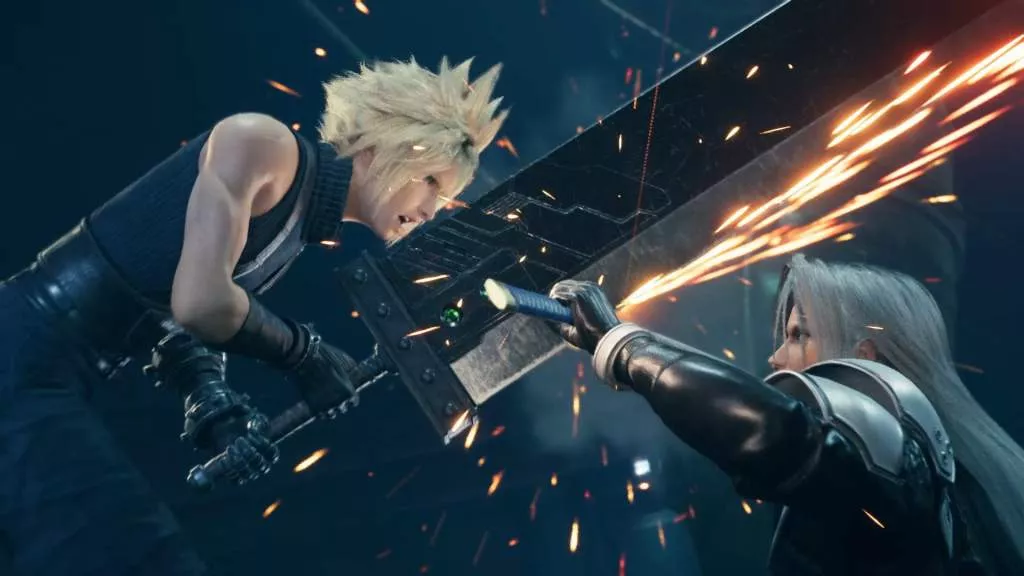
Most gamers would have been content with a simple graphical upgrade for Final Fantasy VII, but Square Enix exceeded expectations by delivering a completely fresh interpretation of the beloved classic.
While the visuals in this remake are truly stunning, it’s the expanded narrative and new real-time combat system that truly breathe new life into the game. This modernized version appeals to both contemporary and nostalgic gamers alike. However, as impressive as the Final Fantasy VII Remake is, it still falls short of surpassing the original, mainly due to the fact that it only covers a portion of the complete story. Moreover, the conclusion of the game hints at the exploration of new narrative paths in the upcoming installments.
The ultimate perception of the Final Fantasy VII Remake may hinge on how the next two parts of the planned trilogy unfold. Fortunately, early details emerging about Final Fantasy VII Rebirth are promising, providing hope for an exceptional continuation of the saga.
Final Fantasy X
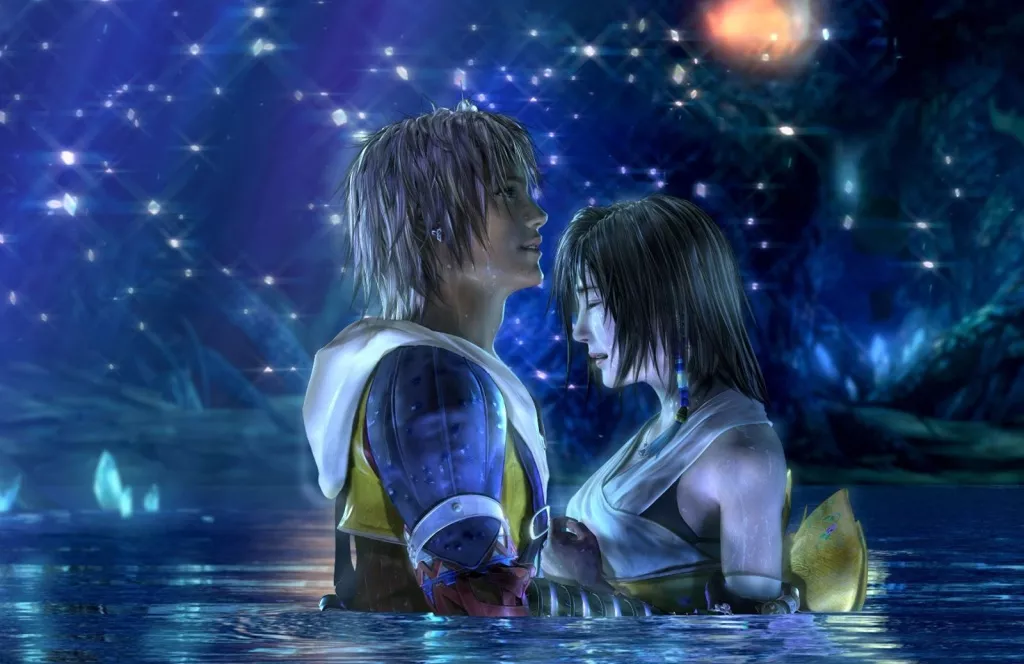
Looking back, Final Fantasy X marked the culmination of many elements that initially propelled the series to popularity. It stands as the last installment to embrace (largely) traditional turn-based combat and random encounters, while also being the final game to feature a predominantly Nobuo Uematsu-composed soundtrack. However, the game simultaneously embraced the future by introducing voice acting and fully realized 3D backgrounds. These advancements, perhaps due to their enhanced cinematic presentation, also led to a shift towards a more linear storytelling approach.
One of the most remarkable aspects of Final Fantasy X is its exceptional cast, which remains unmatched since the series entered double digits. Despite Tidus’s dorky nature, he remains a likable character, and it becomes difficult not to become emotionally invested in his journey. Ultimately, Final Fantasy X offers a game experience that caters to both longstanding fans and newcomers, and this versatility contributes to its enduring popularity throughout the years.
Final Fantasy VII
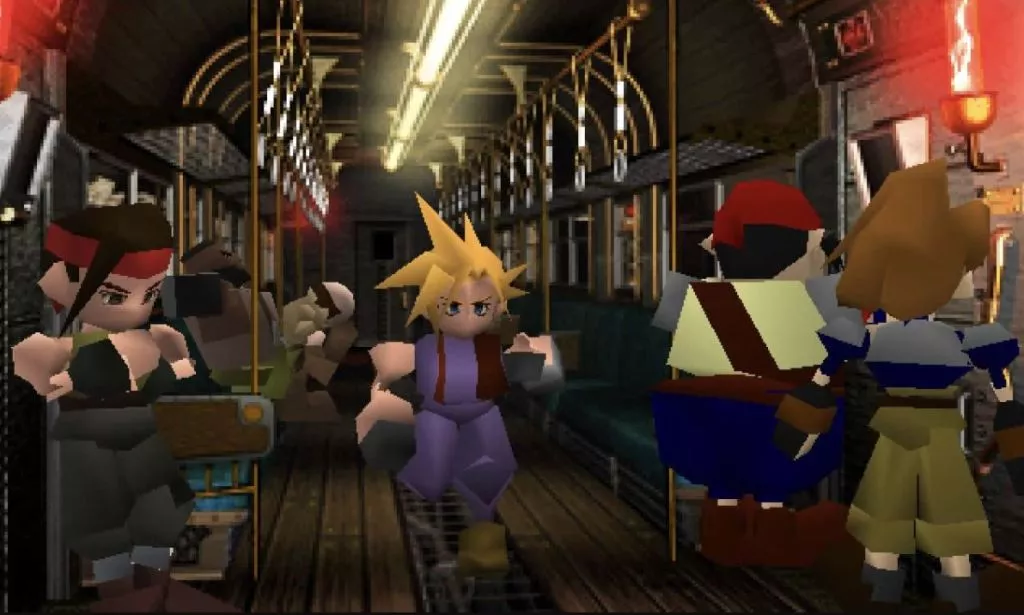
If you find joy in playing obscure JRPGs in English nowadays, Final Fantasy VII deserves the credit for making it possible.
Prior to Final Fantasy VII, localizing RPGs was considered a risky endeavor for most publishers, as the perceived audience for such games was believed to be quite limited. It’s worth noting that three entries in the series hadn’t even received official releases in the United States before Final Fantasy VII. However, this groundbreaking game, with its epic storyline, unforgettable moments like Aerith’s death, immersive world, and captivating soundtrack, resonated with such a wide range of players that it paved the way for RPGs to flourish in the Western market.
Granted, the game may appear a bit dated now, but its impeccable atmosphere, well-crafted writing, and surprisingly engaging combat system have stood the test of time remarkably well. While the remake boasts enhanced visuals, revisiting the original version still provides the optimal way to experience the essence of Final Fantasy VII.
Final Fantasy VI
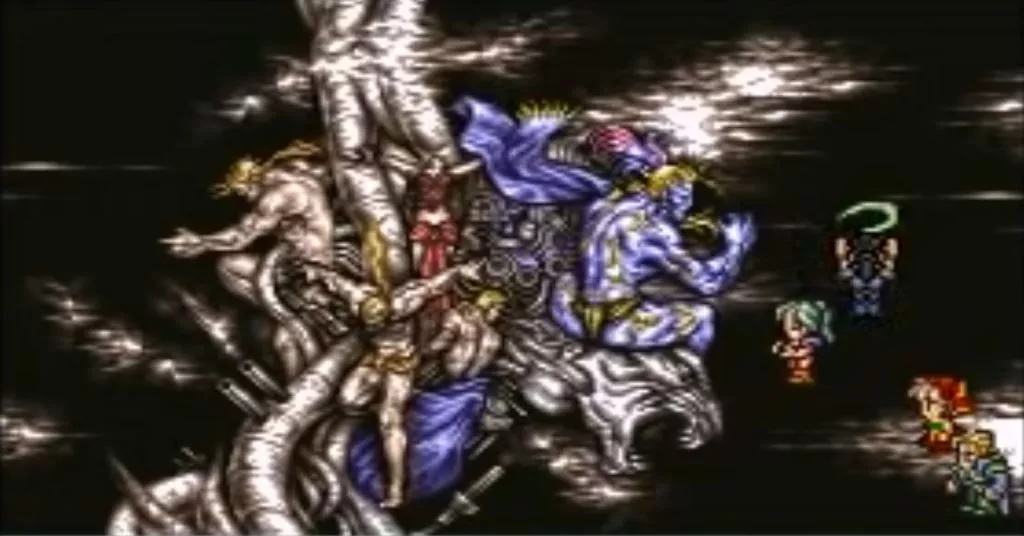
Subsequent entries in the Final Fantasy franchise may boast superior graphics and swifter combat, but despite these advancements, Final Fantasy VI stands as the pinnacle of the series.
Ultimately, this distinction boils down to one crucial element: the story. A remarkable narrative will always reign supreme in an RPG, and in this regard, Final Fantasy VI reigns supreme. Its unparalleled tale owes its greatness to a cast of unforgettable characters, featuring over a dozen playable individuals. Additionally, the deranged antagonist, Kefka, epitomizes the perfect villain, while the game delivers one of gaming’s most astounding twists as Kefka triumphs and triggers an apocalyptic event.
Final Fantasy VI remains a pinnacle of emotional depth and captivating storytelling, achieving this feat without the aid of high-definition graphics or lengthy CGI cinematics. It serves as an absolute masterclass in narrative craftsmanship and is an absolute must-play for any RPG enthusiast.
